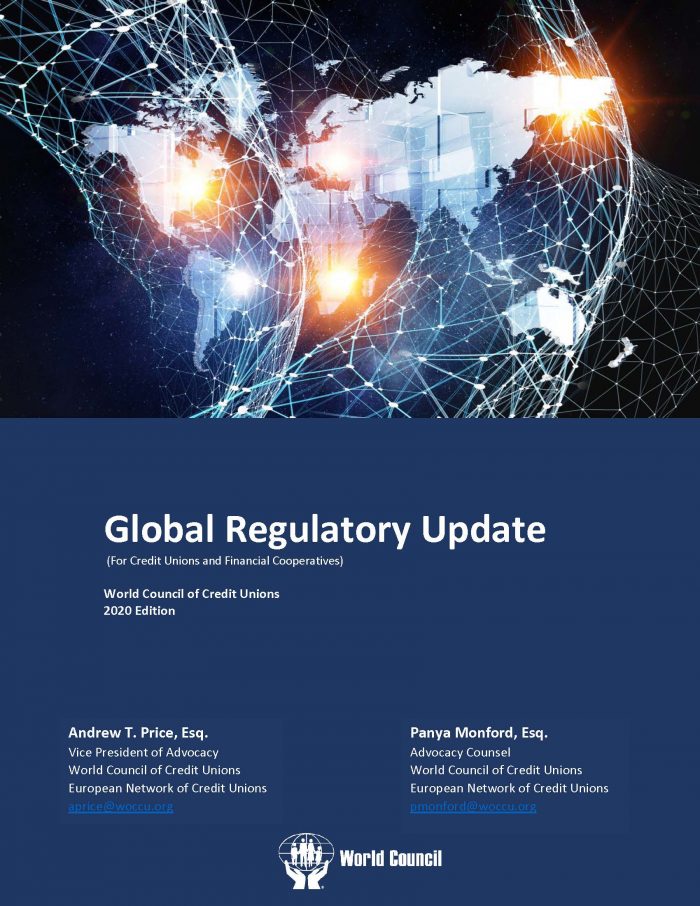WOCCU releases 2020 Global Regulatory Update
Digitization to impact key compliance issues facing credit unions
MADISON, WI (March 10, 2020) — An increased focus on digitization will force credit unions and other financial cooperatives to navigate a complicated, intertwined and often inconsistent set of regulations, according to the 2020 Edition of World Council of Credit Unions’ (WOCCU) Global Regulatory Update.
The new edition covers the leading regulatory issues affecting credit unions across the globe, including:
- Proportionality
- Anti-money laundering and counter-financing of terrorism (AML/CFT).
- Sustainable Finance.
- Privacy and Open Banking.
Those areas have been priorities for both international standard setting bodies and national-level regulators over the past few years, and that will continue to be the case in 2020.
“And digitization plays a big part in some of the most complex and confusing regulations credit unions face. The increased use of cryptocurrencies and digital identity tools are greatly impacting AML/CFT regulations. Meanwhile, data breaches, identity theft and cyberattacks are all causing regulators to look at updating privacy and open banking laws. We will continue to advocate that those regulators apply proportionality when looking at any new rules in these areas, so they are not overly burdensome or costly for smaller, community-based financial institutions,” said Andrew Price, WOCCU Vice President of Advocacy.
Sustainable finance is an emerging area of regulation, which refers to any form of financial service that integrates environmental, social and governance criteria into business and investment decisions. Many policies or regulations adopted are designed to address the United Nations’ Sustainable Development Goals and to combat climate change.
For example, the Basel Committee on Banking Supervision is closely monitoring the work of the Network for Greening the Financial System and the role climate-related events play when it comes to financial risk. That means credit unions are likely to see evolving international regulatory changes that impact:
- a framework for green mortgages.
- legislation on reporting.
- labels for retail products and related investment products.
- prudential standards that may affect underwriting and other operational matters.
- incorporation of climate-related items into stress testing for investments and others.
“Regulators need to consider the unique needs of the credit union cooperative model when implementing policies to address societal and environmental concerns. More importantly, changes should not be imposed that undermine the safe and sound operation of financial institutions,” said Price.
You can read the entire 2020 Edition of World Council’s Global Regulatory Update by clicking here.

About World Council of Credit Unions
World Council of Credit Unions is the global trade association and development platform for credit unions. World Council promotes the sustainable development of credit unions and other financial cooperatives around the world to empower people through access to high quality and affordable financial services. World Council advocates on behalf of the global credit union system before international organizations and works with national governments to improve legislation and regulation. Its technical assistance programs introduce new tools and technologies to strengthen credit unions' financial performance and increase their outreach.
World Council has implemented 300+ technical assistance programs in 90 countries. Worldwide, 82,758 credit unions in 97 countries serve 404 million people. Learn more about World Council's impact around the world at www.woccu.org.

